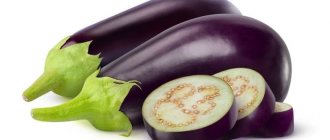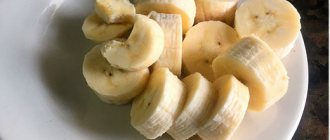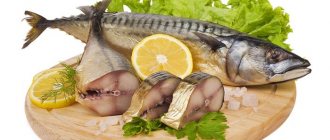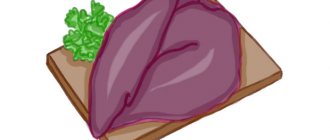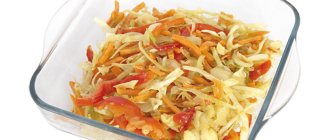Tomatoes, due to their bright color, are considered a forbidden fruit for nursing women. Theoretically, this is true, but in practice they should not be eaten only in the first time after childbirth. In addition, in addition to harm, this fruit can have a fairly large beneficial effect on the female body. So is it possible to have tomatoes while breastfeeding? And if so, in what version?
Tomatoes are allowed for consumption while breastfeeding, but not in the first months after the birth of the baby.
The benefits and harms of tomatoes
Carefully selecting tomatoes for her menu, a nursing mother wonders what is so harmful in the vegetable that it should not be eaten for at least the first three months of breastfeeding. After all, a juicy, ripe and appetizing tomato is, first of all, known for the amount of fiber, vitamins and beneficial microelements.
In addition, the benefits of tomatoes are that their consumption:
- has a positive effect on the functioning of the heart and blood vessels - cholesterol levels are reduced, vascular walls are restored;
- has a beneficial effect on the nervous system - introducing tomatoes into the diet on a regular basis improves mood and helps fight signs of depression;
- improves the functioning of the digestive system - thanks to fiber, the intestines are better cleansed. With reduced stomach acidity, tomatoes increase the secretion of gastric juice. In addition, eating fresh tomatoes can increase appetite;
- helps strengthen the immune system and prevents the spread of diseases;
- with low hemoglobin helps to increase it;
- has a slight diuretic effect - it helps well with hypertension and allows you to cope with excessive swelling in the extremities;
- In addition to the positive effect on vision, it has a beneficial effect on the condition of teeth and bones.
Tomatoes can also be used for cosmetic purposes, for example, to prepare masks for both the face and hair using them.
But not everything is as perfect as it seems. It’s not for nothing that nursing mothers are prohibited from eating tomatoes until the baby is three months old.
Tomatoes are harmful for the following reasons:
- This is a potential source of allergies in infants. The bright colors of the fetus seem to specifically protect the young mother from a dangerous reaction. Plus, tomatoes contain ascorbic acid in considerable quantities, and this can also lead to allergies.
- For babies, tomatoes are dangerous due to colic or stool upset, as they contain too much fiber.
- If a vegetable is brought from afar or purchased in a nearby store out of season, then there is a high probability that the fruit contains nitrates. The benefits of consuming such tomatoes are minimal, but the harm is much greater.
- A fresh tomato can cause increased acidity, which in turn will cause heartburn in a woman or a malfunction of the gastrointestinal tract in an infant.
- A slight laxative effect for the mother can be a serious test for the baby’s digestion and lead to diarrhea.
- If a woman has biliary tract diseases, as well as urolithiasis, then the vegetable eaten can aggravate the situation and aggravate the problem.
In addition, the tomato composition includes lycopene, which can be treated in two ways. This pigment can lead to a negative reaction in the baby, but also act to prevent cancer in women. It stops the aging process of cells, protecting their DNA, while serving as a good antioxidant.
What not to eat during lactation
Let's look separately at foods during breastfeeding that need to be limited or excluded. These include:
- thermally unprocessed products of animal origin - raw and poorly fried meat (kebabs, etc.), fish, sushi, unpasteurized milk, raw eggs
- any alcoholic drinks
- concentrated broths, canned food, pickles, marinades, sausages, hot spices and seasonings
- strong tea and coffee (safe amount of caffeine is up to 200 mg per day, a cup of coffee can contain 60-150 mg of caffeine, and tea – 30-60 mg)
Why are they dangerous? Everyone knows about the dangers of alcohol: it causes irreparable damage to health and destroys the organs of even an adult, and especially a small child. Coffee and strongly brewed tea contain caffeine, which, on the contrary, penetrates well into breast milk and has a stimulating effect on the baby's nervous system.
What tomatoes should you eat while breastfeeding and in what form?
It has been noted that the tomato is clearly an ambiguous fruit for consumption during hepatitis B, but today a large number of tomato varieties have been developed. In addition, there are many recipes for preparing this healthy vegetable that are allowed during lactation.
Fresh, including yellow, tomatoes
Yellow tomatoes are preferable to start eating during breastfeeding due to their lower allergenicity.
In addition to the beneficial elements already mentioned, fresh tomatoes contain essential folic acid, as well as B vitamins. Tryptophan, which helps produce the “happiness hormone” (serotonin), and choline, which can increase hemoglobin. But when breastfeeding a newborn, it is better to eat tomatoes from your own garden, then a mother who cares about the health of her baby can be sure that they do not contain GMOs and various harmful fertilizers. At the same time, you should not buy tomatoes in winter, when the harvest from the dacha ends. After all, most often these fruits contain nitrates, even in appearance they are very different from natural ones - much paler, with a hard peel. It is better not to eat such vegetables, along with fruits that have rotting, for a nursing mother, even fried or stewed. For these purposes, it is much better to use frozen vegetables from your garden.
Yellow fruits contain the maximum concentration of vitamin B, which restores hormone levels, normalizes metabolism, and helps strengthen the nervous and cardiovascular systems.
A yellow tomato is worth trying if you are often allergic to red ingredients. In addition, the yellow fruit contains less acid, which is why it is acceptable in the menu of a woman struggling with high acidity. Yellow tomatoes can help relieve constipation after childbirth, while having a rather gentle effect on the intestines.
Salted or marinated tomatoes
In winter, the question becomes especially relevant: is it possible to eat salted tomatoes while breastfeeding? But most often, young mothers hear the answer that vegetables in marinade are not acceptable during lactation, since during canning the tomatoes will be soaked in vinegar and seasonings, which can penetrate the baby’s body. When salted, vegetables will most likely be without vinegar, but with a high salt content, due to which liquid will be retained in the mother’s body. Therefore, if you really want something salty, you can eat one small tomato, but no more.
Still, it is better for a nursing mother to refrain from eating pickled or salted tomatoes.
Fresh tomato juice
If the answer to the question “is it possible to have tomatoes during breastfeeding” can be answered that yes, but only after the third month of breastfeeding, then about tomato juice we can say that its use by a nursing mother should be postponed until the 4th month of the baby’s life. Juice from fresh tomatoes is very useful, but for the first test it is better to use yellow tomatoes, and if there is no reaction, they can soon be replaced with red fruits.
Stewed tomatoes
The main difference between a stewed dish and a fresh one is that it undergoes heat treatment, during which some of the beneficial elements are destroyed, but stewed tomatoes are much safer for women during lactation. Therefore, when introducing fresh fruits into food, you can lightly simmer them over the fire. But it is worth distinguishing stewed vegetables from fried vegetables; such a dish will definitely not bring any benefit to mother and child.
Stewed tomatoes are a healthy dish in the diet of a nursing mother.
Benefit
Reasons why tomatoes are not only edible, but also necessary
Vitamin C
Exactly what your baby needs right now, strengthening the immune system. Vitamin C is a well-known fighter against viral diseases by strengthening the body’s immune defense, and since your child is not yet allowed ascorbic acid, tomatoes will come in very handy.
Serotonin
This is a natural antioxidant and is intended to help, first of all, the mother herself. The nervous system after childbirth is often shaken due to stress, sleepless nights, and hormonal levels that have just returned to normal. It’s difficult to say that a regular tomato salad will protect you from postpartum depression, but it will still add a little stability to your nervous system.
Phytoncides
These substances have antibacterial properties, resist and prevent inflammation. For your adult body, such helpers may go unnoticed, but the baby will be helped in the fight against viruses, especially if this is the first time for him.
Help with circulation
Substances in tomato seeds are natural blood thinners. If you have such a problem, then tomatoes may partially solve the issue of preventing thrombosis in your body.
Benefits for the gastrointestinal tract
Tomatoes, or rather their peels, successfully eliminate the causes of constipation - poor intestinal function and digestion of foods. For a nursing mother, tomatoes will help get rid of the age-old stomach problems that plague young mothers and pregnant women.
Natural diuretic
Tomatoes during breastfeeding can help eliminate another gradually disappearing problem of pregnancy - disorders of the genitourinary system. It often happens that during the period of gestation the bladder is damaged; purines contained in tomatoes help it gradually recover.
Alpha Tomatine
Has been seen in the fight against cancer cells. All this is still at the research level, but it sounds very good.
Don't be afraid to eat fresh tomatoes if you are breastfeeding. Just check your baby for signs of allergies, and if there are none, then don’t ignore this healthy product and the opportunity to make yourself a tasty and healthy salad.
Should you eat tomatoes during lactation?
If the baby is already noticeably stronger, at least three months have passed since his birth, and the summer sun is shining brightly outside, then it’s worth trying tomatoes during pregnancy. But you still need to eat ripe fruits with caution and following simple rules.
What rules should you follow when introducing tomatoes into the menu?
- It is worth adding the ingredient to a nursing woman’s menu gradually, carefully observing the baby’s behavior and reaction. At the first symptoms of an allergic reaction, the tomato test should be stopped and resumed only after a couple of months.
- It is better to try the vegetable in the morning, then during the day you will notice changes in the child’s condition.
- Vegetables for dishes prepared for a nursing woman must be of good quality, fresh, without preservatives and nitrates.
- You should not eat tomatoes in excess; the maximum dosage during the day is a few tomatoes or a glass of fresh juice.
- The tomato can be eaten either in a salad or fresh; tomato paste is also acceptable during breastfeeding.
- When choosing between salted, fried or canned tomatoes, it is better to eat them stewed. This way, lycopene will be absorbed more easily, and more beneficial properties will remain after processing.
Can I have tomatoes while breastfeeding?
The benefits of fresh tomatoes are undeniable; they will not cause any harm to the baby during feeding, as well as to the mother herself. You shouldn’t deny yourself the chance to make a simple and harmless salad from tomatoes.
When breastfeeding, there is only one contraindication for eating tomatoes – the child’s allergies. There is nothing surprising here - a child up to three months old can be allergic to absolutely anything, because his immunity is not yet fully formed, and during lactation he generally depends on you almost as much as in the womb.
How to check a child for allergies if he is 1-3 months old? First of all, be very careful. Allergies in newborns usually manifest as a normal rash with redness, without causing serious consequences, but your particular child may be allergic with extremely unpleasant symptoms.
Just try to eat a small piece and don't be afraid that it won't be enough for you to try. If your child is sensitive to tomatoes, it will be obvious immediately after consumption, within a day or two.
If the baby does not react in any way, both you and him can eat tomatoes. Tomatoes are generally very useful for breastfeeding, and the fact that there is no allergy will work to your advantage. It is difficult to find a vegetable with such a combination of quality, benefits and availability - you can find tomatoes at any market, supermarket or any other store.
What to consider when choosing a tomato
Not everyone can grow and eat tomatoes from their own plot; most women sooner or later face the issue of choosing ripe fruits. In this matter, attention should be paid to the following points:
- When pressed with your finger, the surface of the tomato wrinkles, but the skin does not crack - it is better not to buy such a product.
- You don't have to throw the vegetable too far so that it lands on a hard surface. The skin should burst, otherwise the fruit contains nitrates.
- The inside of a tomato should not be pale pink, and if you add white veins to this, then it’s absolutely certain that this fruit contains chemicals.
- A ripe vegetable should be rich in color, without signs of rotting or light, unripe spots.
- Fruits with cracks, covered with black spots, should also not be taken.
- Glossy tomatoes with fairly thick skin also do not deserve the attention of a young housewife.
Knowing that in winter the mother will have to feed the baby, in the summer you can take care of freezing seasonal vegetables. This will preserve most of the nutrients in the tomatoes, and in winter, mom will not have to worry about the quality of the ingredients in her menu. But don’t forget that you can start eating tomatoes from three months of breastfeeding, then both mother and baby will benefit from tomatoes
Say a word about the benefits of tomatoes
When discussing the topic of whether tomatoes are ok for breastfeeding, you first need to figure out what kind of vegetable it is and what harm or benefit it can bring to the body.
Tomato (tomato) is not only tasty, but also a very healthy vegetable, containing a number of vitamins and amino acids, antioxidants and fiber , as well as other beneficial substances that have a beneficial effect on the human body.
This product contains the following vitamins in large quantities:
- Vitamin C - stimulates the immune system, has a beneficial effect on the cardiovascular system, helps mother and child protect the body from various infections.
- A – improves vision, helps strengthen hair after childbirth, nails and teeth. Vitamin A is a powerful antioxidant.
- E is a natural antioxidant that has a beneficial effect on the functioning of the nervous system; it saturates cells with oxygen and prevents aging, and also normalizes blood pressure. Vitamin E is a component of all nerve sedatives for women.
- B vitamins (B1, B2, B5, B6, B9 and B12) have a positive effect on the functioning of the digestive system, are responsible for metabolic processes in the body, and stimulate recovery processes, which is important for both mother and child.
- K – promotes the proper functioning of metabolic processes, helps the functioning of the kidneys, participates in the formation of the skeletal system, and helps absorb calcium.
Tomatoes have no cholesterol, and the main part of vitamin C is concentrated around the seeds
. Microelements that are found in large quantities in tomatoes:
- iron – eliminates the risk of anemia;
- phosphorus – has a positive effect on metabolic processes;
- magnesium – normalizes blood pressure and heart rate, prevents stress, helps in the absorption of calcium;
- zinc – strengthens the immune system, participates in metabolic processes, the child’s body absorbs zinc from breast milk almost completely;
- calcium – participates in the formation of bones and teeth, prevents the formation of caries and rickets in a child;
- Potassium – responsible for the functioning of the heart.
Shcherbakov S.A., nutritionist, doctor of the highest category, Delta Clinic, Moscow
Eating tomatoes is mandatory in the diet of nursing mothers from a certain age. Tomatoes will help the mother’s body, weakened after pregnancy and childbirth, to recover faster, because it is one of the richest sources of nutrients and important microelements.
In addition, they will help nursing mothers quickly lose excess weight that they gained during pregnancy.
In addition, tomatoes contain:
- The substance serotonin helps to compensate for the lack of positive emotions, since it is a “hormone of joy”. After all, nursing mothers, whose bodies have recently suffered stress from childbirth, are more susceptible to postpartum depression and severe emotional states.
Translated from Italian, “tomato” means “golden apple”; the French call tomatoes “apples of love”, and the Germans call them “apples of heaven”. - Antioxidant lycopene - reduces the risk of developing cardiovascular diseases and cancer, strengthens bones. Likewise, selenium contained in pink tomatoes prevents cancer.
- Fiber promotes the functioning of the digestive tract, and organic acids contribute to the process of food digestion.
- Choline – lowers cholesterol and increases hemoglobin levels.
- Carotene – slows down the aging process.
The carotene content in a vegetable depends on how ripe the fruit is. The riper it is, the more carotene it contains.
Despite all its beneficial properties, not all people can consume this vegetable. Those who suffer from gallstone disease and diseases of the cardiovascular system should treat tomatoes with caution. In addition, tomatoes can affect the water-salt balance, which leads to kidney problems .
As for nursing mothers, even those who do not have these health problems should use the product with caution, since the tomato is a strong allergen due to its red color, which gives it the substance lycopene.
To avoid an allergic reaction in a newborn, it is better not to eat tomato at all in the first 3 months, and then introduce it gradually.
You can find out what foods are allowed in the first month of feeding in this article, recommendations from nutritionists here.
Sultanova V.V., pediatrician, “Clinic of Allergology and Pediatrics”, Ufa
I strongly recommend abstaining from tomatoes in the first 3 months of a child’s life. The child's gastrointestinal tract is not yet ready to digest this product.
If you really can’t stand it, you can eat a small piece, but only of boiled or stewed tomato.
Useful properties of tomatoes
Tomato fruits are 95% water. The remaining 5% of the composition is filled with beneficial vitamins A, B, C, E and PP, including niacin, thiamine and riboflavin, which are essential for humans. The product is recommended for use by young mothers during breastfeeding due to the high concentration of calcium, potassium, magnesium, sodium and phosphorus, as well as iron and fiber, which reduces the risk of constipation and promotes the formation of intestinal microflora in the baby. In addition to the above, tomatoes contain ascorbic acid, which is involved in hematopoiesis and also activates the production of new collagen fibers for mother and baby.
Despite its low calorie content (only 23 kcal/100g), the tomato is famous for its unique beneficial properties, namely:
- strengthens the immune system;
- has anti-inflammatory and antiseptic effects;
- helps reduce blood cholesterol levels;
- improves appetite;
- helps strengthen the baby's eye muscles;
- normalizes digestive processes;
- has a diuretic and laxative effect;
- stimulates the process of blood renewal in the body;
- prevents the formation of blood clots and blockage of blood vessels;
- improves the functioning of the heart muscle.
Nursing women should not forget about yellow tomatoes. They contain less organic acids than red fruits, so the use of this variety of tomato is allowed for people with high stomach acidity, and those who suffer from liver and kidney diseases. The composition does not contain the component that is responsible for the red color of the vegetable, so it is safe for food allergy sufferers. Despite a number of advantages, it should be remembered that you can buy tomato berries during breastfeeding only during the period of their active ripening: from mid-June to the end of September.
When can mom eat tomatoes?
Data from a sociological survey show that tomato is one of the most consumed foods in the diet of nursing mothers. Doctors say that the craving for tomatoes is due to a hormonal imbalance in a woman’s body after childbirth. While carrying a child, the expectant mother may develop new, often unusual, taste preferences. In some cases, the desire to eat a vegetable is caused by a lack of beneficial vitamins and minerals that are contained in the fruits of the sunny tomato.
To prevent the active substances of tomatoes from harming the small organism, a woman must follow medical recommendations for consuming tomatoes during lactation:
- It is necessary to begin introducing new foods into the diet gradually, observing the reaction and health of the baby.
- You can try tomato only after three months after giving birth, after consulting with your doctor.
- Daily intake of tomatoes for pregnant and breastfeeding women: 3 medium-sized fruits or 1 glass of freshly squeezed juice without salt.
- The first taste of tomato can cause an allergic reaction in the baby’s body. To avoid the negative consequences of consuming this product, try eating 1 small tomato and monitor your child's reaction to the new product. If within two days the active substances of the vegetable do not have a negative effect on your child’s health, feel free to continue introducing tomatoes into the daily diet.
- For better absorption of the element lycopene, which is contained in the product and is responsible for its color, it is most beneficial to consume tomato in combination with vegetable fat, namely sunflower or olive oil.
- It is also undesirable to eat vegetables that have been frozen more than once. If possible, try to avoid eating dishes with tomatoes in cafes and restaurants.
Can a nursing mother eat salted tomatoes?
Salted tomatoes are another stumbling block for nutritionists. Some doctors believe that they are of no use at all during breastfeeding. Others hold the opposite opinion. The only indisputable fact in this situation is that you cannot eat such foods in the first three months of the baby’s life. During this period, the child’s digestive system is defenseless, the intestinal flora is unformed, so it does not need unnecessary shocks.
It is best to start eating your favorite treats after your baby is 6 months old. In the same way as in previous cases, the product should be introduced into the diet gradually, without forcing events.
Follow the recommendations of doctors who believe that you should try the salted vegetable for the first time in the morning, then feed the baby and watch him for a day. If such a product is not suitable for a small organism, then after about 12-24 hours a rash will appear on the skin and gases will begin to escape profusely. That is, you should forget about pickles. To avoid atopic dermatitis, the first portions should be very small.
The very name “pickles” suggests that such products contain too much salt. An abundance of salt, as many people know, leads to the accumulation of excess fluid in the body. And this threatens with swelling, increased blood pressure, and obesity. It is recommended to eat approximately 100-15 grams of pickles.
Tips for nursing mothers on eating and choosing tomatoes
Recommendations:
- When introducing tomato into your diet, do not forget about the quantity of the product. Take precautions to avoid causing complications in your baby.
- Choose vegetables with thin but intact (not damaged) skins.
- Give preference to locally grown fruits.
- Don't buy tomatoes in winter.
- Do not purchase spoiled fruits.
- Avoid any fruit that is pale pink or has rough veins in the cut; it is likely to contain a lot of pesticides.
- Do not buy tomatoes out of season - this is when there is a high probability of buying vegetables with a lot of chemicals.
Watch video tips on how to choose the right tomatoes:
If your main period of tomato consumption is planned for the “off season,” then prepare for it in advance: during the ripening period of vegetables, buy fresh tomatoes (preferably small, cherry ones) and freeze them in the freezer for future use.
How to choose the right tomatoes?
It’s not enough to find out when mom can eat tomatoes; she also needs to know how to choose them correctly. If there is no desire to cope with the consequences of allergies or colic, then the choice of food products must be approached very carefully. At the time of buying:
- Press the tip of your fingers on the tomato; if the skin does not burst, but bends, it is not worth buying;
- ask to cut the vegetable; if there are white veins in the pulp, then it was grown using chemicals and a young mother should not eat it;
- inspect the tomatoes for black spots, rot, cracks;
A good tomato has a peel of medium density, peels off easily, and does not burst when thrown 15-20 cm above a hard surface. During the purchase process, you can also taste the vegetable - tomatoes that are too sweet or too sour are not suitable for consumption.
Carefully inspect your tomatoes before you buy them.
Rules for eating tomatoes
The baby is not yet able to cope with the stresses that are found when eating heavy or low-quality food. To avoid a negative reaction, a young mother needs to remember simple rules of nutrition, and above all, eating vegetables:
- tomatoes are introduced into the body gradually, you cannot immediately eat a large tomato or even several, you can eat a piece 1-1.5 hours before feeding and watch the baby (if signs of rash or colic appear, stop eating the vegetable for 1-2 months and only after this time they try again);
- It is better not to buy vegetables in the store during breastfeeding (tomatoes are purchased only at the market and from trusted sellers who sell their vegetables from the garden);
- even in the absence of a rash and other troubles, they eat no more than 1-2 medium-sized tomatoes per day;
- Any marinades and pickles are harmful.
Stewed vegetables, even after processing, are not devoid of useful substances, so they can be consumed.
Start tasting tomatoes with a couple of pieces
From what month can you have tomatoes?
Pediatricians set a clear limit on what month a woman can start eating tomatoes during breastfeeding. Like any other potentially allergenic product, the red vegetable is not entirely harmless. Experts admit that it is unsafe to consume these vegetables if the child is only 1 month old or a little older. At the same time, when starting to accustom her own body and the body of the baby to a new product, a woman should remember that fresh tomatoes can be consumed no earlier than 2-3 months after birth. Nutrition during breastfeeding by month according to Komarovsky implies limited consumption of tomatoes.
At two months you can try a tomato


